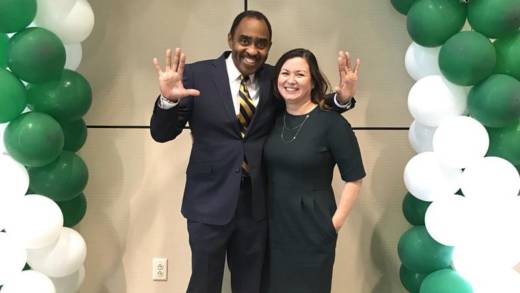Another top executive at the Silicon Valley Community Foundation has left the building, the third such departure in three weeks.
Daiva Natochy was the VP in charge of recruitment and culture. Her departure follows that of CEO Emmett Carson, put on paid administrative leave last week, and of the chief fundraiser, who resigned over claims she bullied employees the week before that.
Stephen Diamond, Associate Professor of Law at Santa Clara University, specializes in corporate governance and labor issues. Even though the Foundation’s board hired two outside law firms to investigate, Diamond says that’s no guarantee a major overhaul is coming next.
“These are signs of trouble, not signs of a solution. The fact that they had to hire two law firms, not one, signals that the initial decision to hire the first law firm, which appears to have been made by the now somewhat ousted CEO Emmett Carson, wasn’t good enough. They’ve also brought in a law firm that is known for being very tenacious in defending organizations that it’s hired to defend. That suggests to me that they actually fear more serious problems,” Diamond says.
Diamond goes so far as to suggest the office of California Attorney General Xavier Becerra step in to investigate. (Reached by KQED, Becerra’s office said that “to protect its integrity, we can’t comment on, even to confirm or deny, a potential or ongoing investigation.”)


